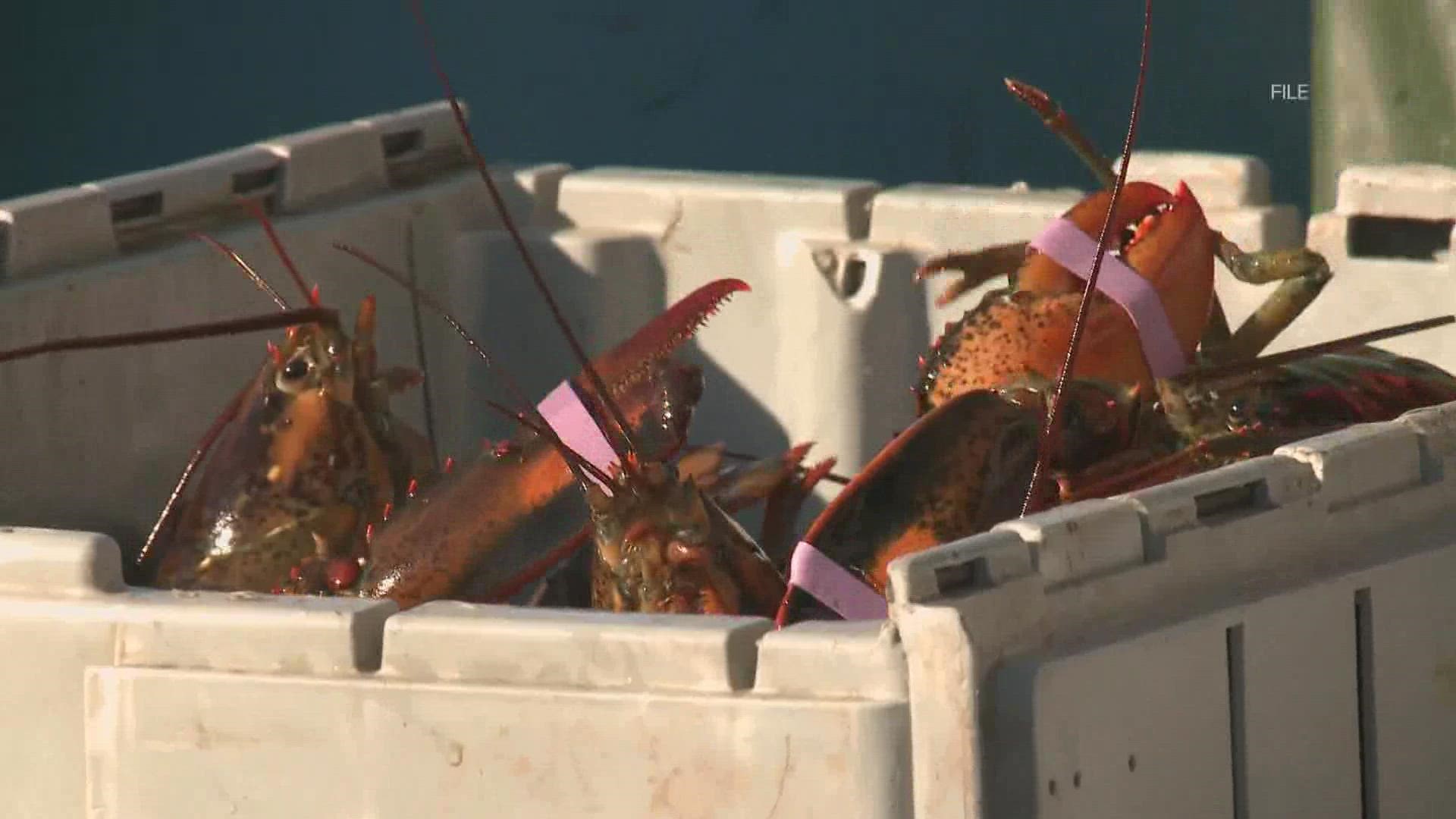AUGUSTA, Maine — Maine lobstermen continue to insist the new federal rules to protect endangered right whales are unfairly penalizing Maine's lobster industry.
That's why the state's two leading lobstering organizations are involved in cases in federal court challenging the rules.
On Tuesday, some lobstermen asked the Maine Legislature to help provide money for their legal fees.
Rep. Billy Bob Faulkingham, R-Winter Harbor, is a fisherman and testified in support of his bill to create a new Lobster Legal Defense Commission and provide money to let the commission assist with legal fees.
"This can't be won in the Legislature. It can't be won by a popularity contest. [It] can't be won by the court of public opinion," Faulkingham told NEWS CENTER Maine. "It can only be won in a court of law. That's why we need a legal defense fund."
Senate President Troy Jackson, D-Aroostook, supported Faulkingham's bill. Jackson said, in part, "It will help ensure that lobster harvesters have a voice in future discussions and make sure that their voice cannot be ignored."
Under his bill, the nine-member commission would be appointed by the governor and Legislature, with six members who are licensed lobstermen or women and three who are dealers.
The money would come from the existing surcharge on lobster licenses created to fund the lobster industry marketing effort. Faulkingham said only a portion of that surcharge would be diverted to the defense fund.
The money would also come from the annual fee for tags on each trap. That money currently goes to the Department of Marine Resources, and DMR Commissioner Pat Keliher said losing that revenue would hurt the department,
"You have trap tags and the marketing fee. And if they pull that money from the department and didn't replace it, that means you lay off [Maine] Marine Patrol officers, lay off scientists, and other administrative people," Keliher said in an interview.
The department opposed the bill at the public hearing, and Keliher said there are some problems with how it proposes setting up the commission.
"In the research I did, there is no other case where the state created a legal defense fund for private industry," the commissioner said.
The state is already involved in two federal court cases opposing the whale rules, and Keliher said Gov. Janet Mills has agreed to ask the Legislature for an additional $980,000 to pay for its legal costs.
He suggested lobstermen could afford to fund their costs.
"The lobster industry is coming off its biggest year ever. The industry has the wherewithal to make donations to both [industry groups]. That seems better than creating a new bureaucracy to decide who funds what," Keliher said.
The Maine Lobstermen's Association, the state's largest lobstering organization, also opposed the bill.
Faulkingham said in the interview he believes the differences with the MLA can be worked out. He again said the money would come from those fees fishers already pay so that no state tax money would be used.
He added that fishers need the added financial help with legal costs.
"I think what we need is a reliable source of revenue to fund these legal fights, and this is a mechanism that will take our own money and provide that reliable revenue," Faulkingham said.
The Legislature's Marine Resources Committee plans to discuss and possibly vote on the bill next week.
Those lawmakers are also planning to discuss a separate bill that would create a $30 million emergency fund, using state funds, to help fishers pay for the expenses of complying with the new whale rules.
Lobstermen said they face high costs for new rope and connectors to modify trap lines and potential boat modifications for some.
In years ahead, further requirements of those whale rules are likely to involve even more significant expense as the federal regulations seek to minimize the number of "vertical lines," or ropes, in the water, which regulators say could potentially get tangled with right whales.

